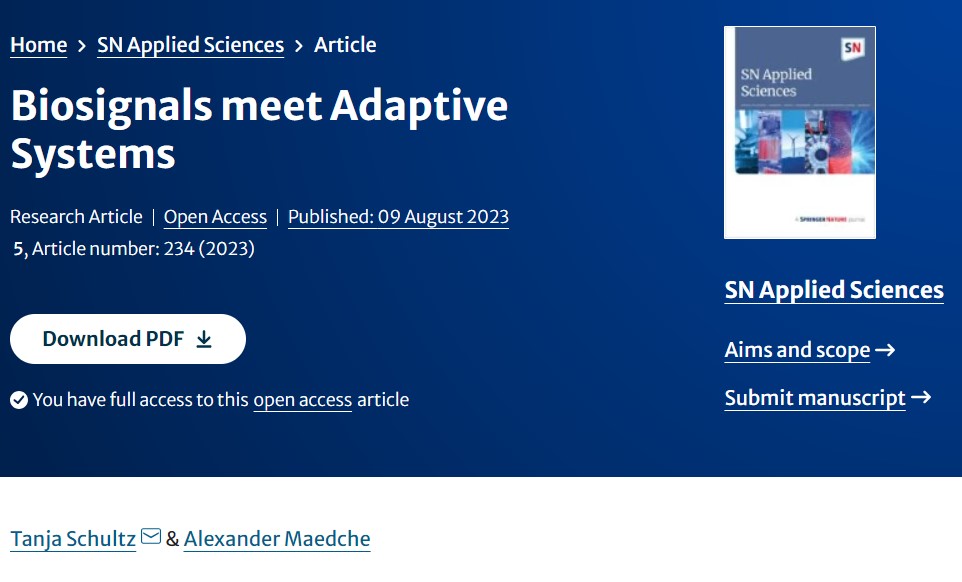
New Publication in SN Applied Sciences: Biosignals meet Adaptive Systems
- Date: 10.08.2023
-
The paper “Biosignals meet Adaptive Systems” co-authored by Tanja Schultz (Cognitive Systems Lab, Uni Bremen) and Alexander Maedche (h-lab, KIT) has been published in SN Applied Science. The paper presents a perspective on Biosignal-Adaptive Systems (BAS) which automatically adapt to user needs by continuously interpreting their biosignals and by providing transparent feedback, thereby keeping the user in the loop. The joint perspective has been developed as part of the DFG-funded “KD2School”, where Tanja Schultz and Alexander Maedche give a joint interdisciplinary course on biosignal-adaptive systems. The article is available via open access on https://rdcu.be/di5g0
Title: Biosignals meet Adaptive Systems
Authors: Tanja Schultz and Alexander Maedche
Abstract: This paper presents a perspective on Biosignal-Adaptive Systems (BAS) which automatically adapt to user needs by continuously interpreting their biosignals and by providing transparent feedback, thereby keeping the user in the loop. The major hallmark of the described BAS is the low latency with which biosignals are processed, interpreted, and applied to perform rapid system adaptation, providing the user in the loop with immediate feedback on the BAS’s understanding of his or her condition. In contrast to explicit user input or the interpretation of observable behavior, the rapid system adaptation relies on biosignals, which in context of a concrete application can be interpreted as implicit signals of user needs. Recently, great advances have been made in sensor integration into smart devices, making it possible to collect vasts amounts of multimodal biosignal data. Furthermore, powerful machine learning methods enable rapidly processing and learning from such data. We argue that the time has come to harness the full spectrum of low-latency processing of biosignals to understand user needs and to apply this information to deliver adaptive systems accordingly. However, this will just be the beginning: real-time signal processing in combination with ubiquitous devices that are always connected to huge processing and storage capacities allow systems to provide users (and bystanders) with instant and transparent feedback and adaptations for the recognized needs. In the future, such systems could run 24/7 to assist users @home, @work, and @play from the cradle to the grave. Thus, BAS must be human-centric to curate data, archive information, learn from experience, and adapt to individual users throughout their lifespan. In this position paper, we present the concept of BAS with its key building blocks, provide selected examples of BAS from our research, and articulate selected challenges for future research.

